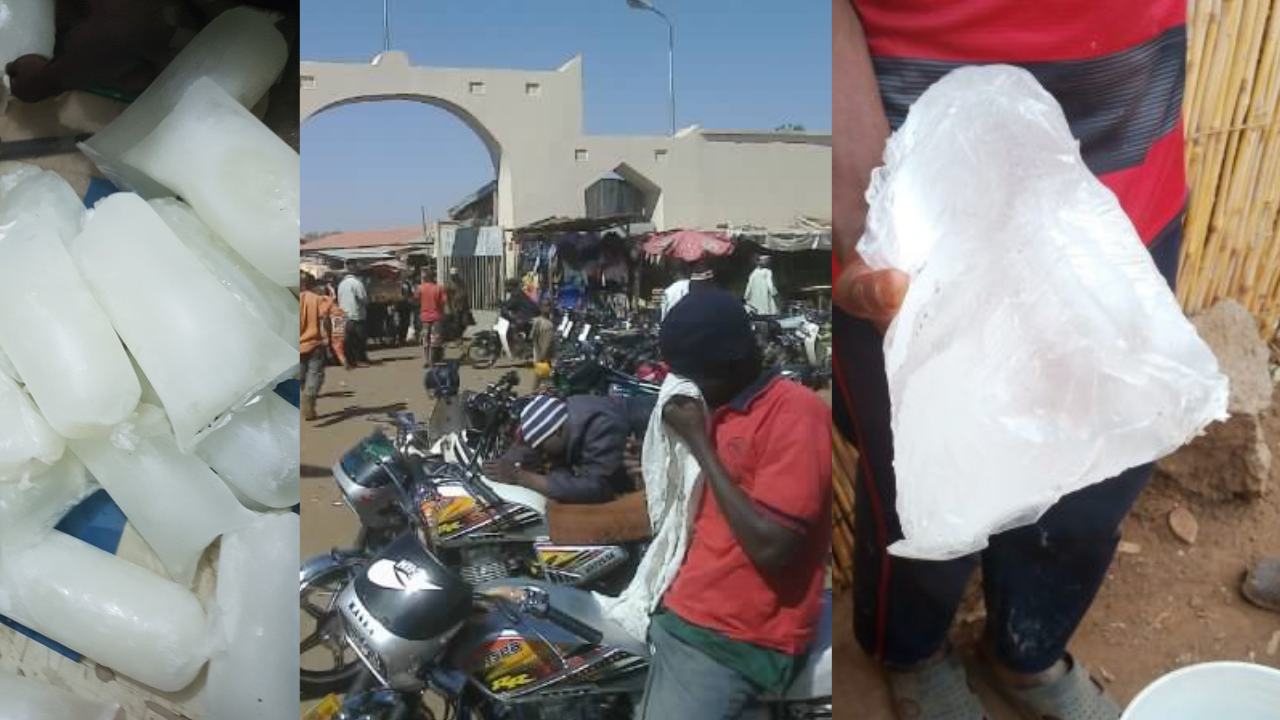ENVIRONMENT

SOKOTO RESIDENTS USE ICE BLOCKS TO FIGHT HEAT, POWER OUTAGE
As temperatures soar in Sokoto, residents are turning to ice blocks for relief amid severe heat and erratic power supply.
Hauwau Suleman, a drink vendor and tailor in Sokoto Metropolis, wipes sweat off her face under the scorching sun. She had just returned from a futile trip to a military barracks in search of ice blocks. “I got nothing but aching legs,” she said.
In another part of the city, teacher Ibrahim Gobir sat under a tree outside his classroom. The ceiling fan in his office was still — another casualty of persistent power outages. "It’s like living in hell," Gobir said. “I can’t sleep in my bedroom anymore. I stay in the sitting room with all windows open just to breathe.”
Sokoto's Sweltering Reality
Northern Nigeria, including Sokoto, often experiences extreme heat. Recent weeks have seen temperatures spike between 39°C and 43°C, with rainfall scarce. According to the Nigerian Meteorological Agency (NiMet), such heat levels are dangerous and may lead to dehydration, heatstroke, and even death.
Though no official fatalities have been reported in Sokoto, residents have complained of fever, headaches, and fatigue. Gobir recalled a night when he woke drenched in sweat, burning with fever due to the stifling heat.
No Power, No Relief
For many, the unbearable heat is compounded by poor electricity supply. Some areas get just 2–3 hours of power daily, leaving residents with no access to fans or air conditioners. The rising cost of fuel has made generators unaffordable for most.
“The fan is useless without light, and I don’t have solar. I just use a hand fan,” said Mariam Nofiu, a trader.
Ice Blocks: A Lifeline for the Poor
With few alternatives, residents like Gobir and Nofiu rely on ice blocks to cool their drinking and bathing water. Some households spend up to ₦2,000 weekly on ice blocks. “I carry a jug filled with ice water just to stay sane,” Gobir said. Yet, this added cost is straining already tight household budgets.
A Booming Business
For sellers, the heat has created a business opportunity. Ice block vendors like Sani Maigari and Umar Bello report earning up to ₦20,000–₦100,000 daily depending on the weather. “I used to run another business but switched when I saw how profitable this is,” said Maigari.
Prices range from ₦100 for small sachets to ₦400 for large blocks. However, sales drop in the rainy season when demand falls and prices drop.
NiMet forecasts 110–150 days of rain for Sokoto this year, meaning residents may have to endure many more scorching days before real relief arrives.
Until then, ice blocks remain a vital — albeit costly — tool for survival.
"This represents a significant development in our ongoing coverage of current events."— Editorial Board









